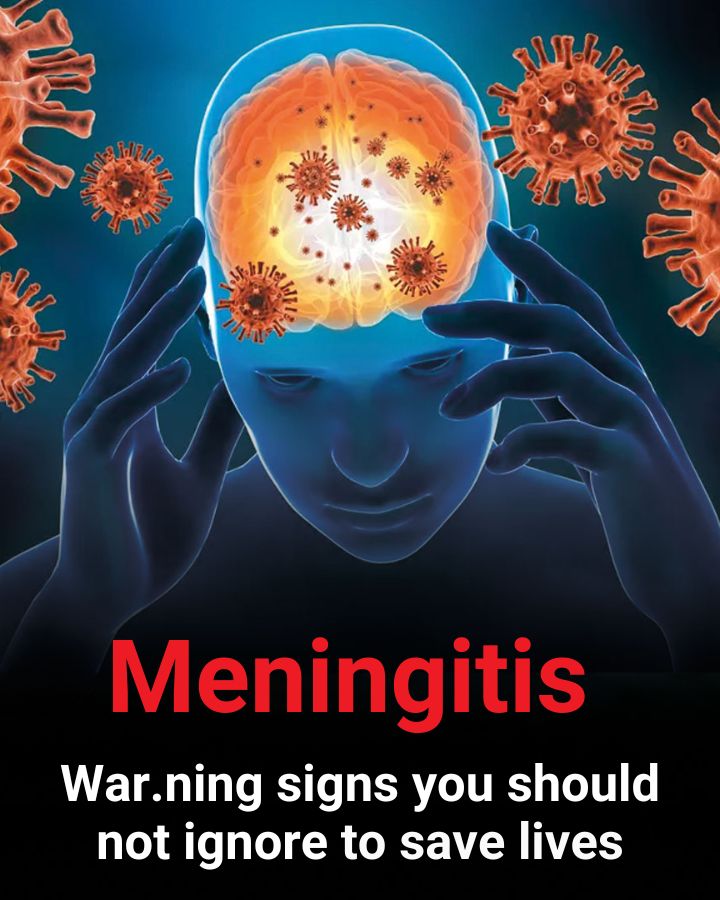When you’re dealing with what feels like a typical fever or a nagging headache, it’s easy to assume it’s just a passing bug. Maybe it’s the flu, a bit of fatigue, or something you picked up from your kid’s daycare. But what many people don’t realize is that those seemingly minor symptoms can be the early signs of something much more serious—meningitis. This life-threatening infection moves fast and can have devastating consequences if not caught in time. Every year, meningitis strikes without warning, and because its initial symptoms mimic more common illnesses, people often delay seeking help. But knowing the warning signs could save your life—or the life of someone you love.

One of the reasons meningitis is so dangerous is how easy it is to mistake it for something less serious. It can start with a fever, chills, and fatigue—nothing that seems out of the ordinary. But there are specific symptoms that should never be ignored. One major red flag is neck stiffness. If you suddenly find it painful or difficult to move your head, it’s time to pay attention. Another key sign is sensitivity to light and sound, known as photophobia and phonophobia. If everyday lights and noises suddenly become unbearable, that’s another warning. Then there’s purpura fulminans—those reddish or purplish spots on the skin that don’t disappear when pressed. These marks can indicate blood poisoning caused by meningitis and need immediate attention. For infants, the symptoms may be different but just as serious. Watch for excessive drowsiness, a bulging soft spot on the head (called the fontanelle), and unusual lethargy or limpness.
Speed is everything when it comes to meningitis. Infections like meningococcal C can advance in mere hours, earning them the nickname “fulminant meningitis.” Without fast treatment, the infection can result in serious long-term consequences including brain damage, amputations, hearing loss, seizures, or even death. That’s why recognizing the symptoms and acting quickly is critical. If you’re ever in doubt, don’t hesitate to call emergency services—it’s better to be safe than sorry.
Fortunately, prevention has taken a big step forward. As of January 1, 2025, France has made the meningococcus B vaccine mandatory at birth.
This decision was made in response to a 72% increase in meningitis cases in 2023. Vaccination remains one of the most effective ways to protect against this deadly infection. Alongside vaccines, there are a few simple hygiene practices that can help reduce your risk: washing hands regularly, avoiding the sharing of utensils or drinks, and wearing a mask if you have a cold. Nonprofits like “Audrey – Méningites France,” founded by parents who tragically lost their child, are working tirelessly to spread awareness and advocate for early detection and prevention.
If you ever see signs of meningitis—especially purpura, neck stiffness, or extreme fatigue—don’t hesitate. Call 911 or head straight to the emergency room. The earlier it’s caught, the better the outcome. Raising awareness, educating families, and promoting vaccination are the best tools we have to fight this disease and prevent unnecessary loss.
In addition to meningitis, there are several other types of pain or symptoms you should never ignore. For example, painful urination accompanied by a sudden urge or frequency could point to a urinary tract infection, kidney stones, or even prostate issues in men. Left untreated, these can cause more serious health complications. Another symptom to look out for is swelling and pain in your leg, especially if it’s red and warm. This may be a sign of Deep Vein Thrombosis (DVT), which can lead to a life-threatening pulmonary embolism if a clot travels to the lungs.
Throat pain, especially when swallowing feels unusually harsh, can be caused by something simple like strep throat or tonsil stones. But if left unchecked and accompanied by a fever or changes in your voice, it’s worth seeing a doctor. Chest pain is another symptom that should never be ignored, especially when paired with dizziness, shortness of breath, or cold sweats. It could indicate a heart attack or another serious heart issue.
Severe headaches can sometimes be a sign of something much more dangerous than stress or lack of sleep. They might signal a hemorrhagic stroke, a brain aneurysm, or even meningitis itself. If your headache is intense and comes with nausea, vision changes, or confusion, seek medical help immediately. Similarly, sharp lower back pain could be linked to conditions like kidney stones, muscle injuries, or in women, endometriosis. Pelvic pain in women is often associated with periods or ovarian cysts, but in some cases, it may point to an ectopic pregnancy or even cancer.
In short, when it comes to your health, listen to your body. If something feels off or a pain lingers longer than it should, don’t brush it off. Early intervention can make all the difference—not just for meningitis but for a whole range of health conditions.





